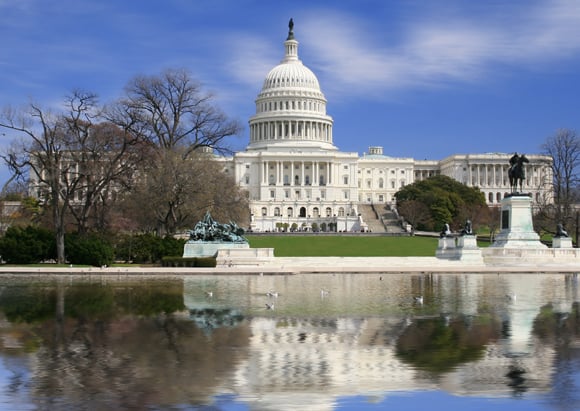In a politically brittle Washington, most issues cause a fissure down party lines. Republicans and Democrats can find a way to disagree on just about anything.
The same must hold true for financial regulation, right? Democrats defend the Dodd-Frank law, while Republicans try to unravel it? That's true in the broad contours of the debate.
But cracks appear when you look closely at some recent bills. For instance, Rep. Barney Frank, D-Mass., is waging a fight against two Republican bills that will be before the House in April that he says “would re-deregulate derivatives in ways that would again make them a threat to our economy.”
He's talking about the
Swap Execution Facility Clarification Act, which he said would pull a veil over swap prices, and the
Swap Jurisdiction Certainty Act, which he said would prevent regulators from monitoring overseas derivatives business of U.S. financial firms.
Mr. Frank argues that both bills would undermine the derivatives reforms ushered in by the bill that bears his name. He maintains that Democrats support efforts to fine-tune Dodd-Frank, but these bills go too far.
Democrats have “insisted on amendments to the two bills that are necessary to keep them from simply becoming potential routes to a return to the excesses of the recent past,” Mr. Frank said in a statement.
But one of the measures, the Swap Jurisdiction Certainty Act, was written by Rep. James Himes, D-Conn. It's co-sponsored by two other Democrats — Rep. Carolyn McCarthy, D-N.Y., and Rep. David Scott, D-Ga. The other bill is co-sponsored by Rep. Carolyn Maloney, D-N.Y., and Rep. Gregory Meeks, D-N.Y.
Yes, many of these Democrats are from New York City or the surrounding area, where the financial industry influence is the strongest. Yet Mr. Frank will not have a united Democratic backing when he fights the swap bills.
Democrats also split on the capital formation bill, the Jumpstart Our Business Startups Act, that President Barack Obama signed Thursday. It was opposed by 26 Senate Democrats who think the investor protections are not strong enough.
But Mr. Himes helped lead the House floor debate just before final passage in that chamber. “Regulation, like anything else, has to adapt to the changes of the times,” Mr. Himes said.
The traditional debate between Republicans and Democrats over financial regulation is highlighted by Rep. Scott Garrett, R-N.J., and New York Attorney General Eric Schneiderman.
“As a result of the policies signed into law by this president and his congressional allies, we now have a banking and financial system predominantly controlled and co-opted by the government,” Mr. Garrett said in a March 28 speech at the U.S. Chamber of Commerce. “The freedom of the U.S. capital markets is under attack.”
In a speech to a Council of Institutional Investors conference this week, Mr. Schneiderman urged Democrats to stay the course on financial reform. He said that Dodd-Frank opponents are “free-market fundamentalists” who would re-deregulate the U.S. financial system and leave it vulnerable to another collapse.
“We have not as a nation repudiated the ideology that led to the 2008 crisis,” Mr. Schneiderman said.
In the coming weeks, it will be interesting to see whether Democrats split over the issue of whether to establish a self-regulatory organization for investment advisers, another bill that Mr. Frank opposes.







